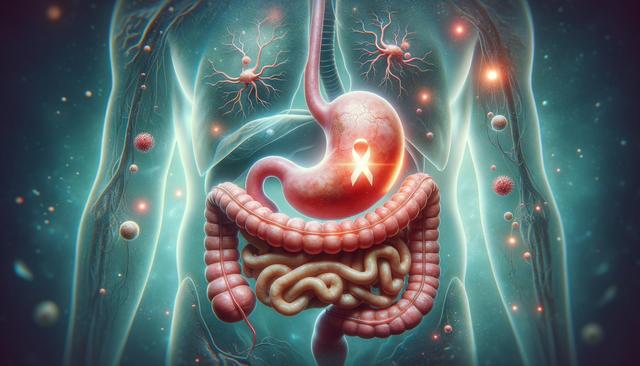Understanding Stomach Cancer and Its Development
Stomach cancer, also known as gastric cancer, begins in the lining of the stomach and can progress slowly over time. In many cases, symptoms do not appear until the disease has advanced, which is why recognizing early indicators is crucial. The development of this cancer may be influenced by a combination of genetic factors, lifestyle habits, and infections such as Helicobacter pylori. While it can affect anyone, individuals over the age of 50, smokers, or those with a family history of stomach cancer may be at higher risk.
In its early stages, stomach cancer may not cause significant discomfort, making it easy to overlook. However, subtle changes in digestion and overall health can signal the need for medical attention. Understanding how these early signs present themselves can support early diagnosis and more effective management.
Common Early Symptoms to Watch For
Several symptoms can suggest the early presence of stomach cancer, though they often mimic more common digestive conditions. Being alert to persistent and unexplained changes in your digestive health is key. Common early symptoms include:
- Persistent indigestion or heartburn
- Feeling bloated after eating small meals
- Nausea or vomiting that doesn’t seem related to food poisoning or a stomach virus
- Loss of appetite or feeling full quickly
- Unexplained fatigue or weakness
These symptoms may come and go or vary in intensity. However, when they persist over time or worsen, it is important to consult a healthcare provider. While not exclusive to stomach cancer, these signs can prompt early testing and diagnosis.
When Digestive Changes Signal a Deeper Problem
Digestive issues are common, but certain patterns may indicate something more serious. For example, feeling full after eating only a small portion of food can be a red flag, especially if it happens regularly. Similarly, chronic indigestion that doesn’t improve with over-the-counter medications should not be ignored. These symptoms may result from a tumor forming in the stomach, disrupting normal digestive processes.
Other digestive-related symptoms that may appear during early stages include:
- Mild pain or discomfort in the upper abdomen
- Frequent burping or acid reflux
- Black or tarry stools, which could indicate internal bleeding
If any of these symptoms are accompanied by weight loss without trying, they warrant further medical evaluation. Early investigation can help rule out cancer or initiate prompt treatment if needed.
Importance of Medical Evaluation and Screening
Because the early symptoms of stomach cancer are often subtle, medical evaluation plays a vital role in early detection. Diagnostic tools such as endoscopy, biopsy, and imaging tests can help confirm whether symptoms are related to stomach cancer or another condition. In some countries, routine screenings are recommended for high-risk groups, especially where gastric cancer rates are elevated.
Even if symptoms seem mild or unrelated to a serious condition, it’s better to err on the side of caution. A physician can assess symptoms in the context of personal and family medical history, and recommend appropriate next steps. Early-stage stomach cancer is more likely to be treated effectively, making timely evaluation essential.
Steps to Protect Digestive Health
While not all cases of stomach cancer can be prevented, certain lifestyle choices may reduce overall risk. Maintaining digestive health involves both dietary and behavioral adjustments. Consider the following actions to support long-term stomach health:
- Eat a balanced diet rich in fruits, vegetables, and fiber
- Limit intake of smoked, pickled, and processed foods
- Avoid tobacco use and limit alcohol consumption
- Manage stress and maintain a healthy weight
- Get regular checkups, especially if you have a family history of stomach issues
Monitoring your digestive health and responding to changes promptly can make a significant difference in early detection and successful treatment. Staying informed and proactive is a key part of managing your overall well-being.
Conclusion: Awareness Can Lead to Better Outcomes
Early-stage stomach cancer often presents with subtle symptoms that are easy to overlook. By understanding the potential warning signs—such as indigestion, early satiety, and unexplained fatigue—individuals can take steps to seek timely medical advice. Although these symptoms can be linked to less serious conditions, their persistence should not be ignored. Taking charge of your digestive health through awareness, regular checkups, and healthy habits can contribute to earlier detection and more effective treatment if stomach cancer is present.


